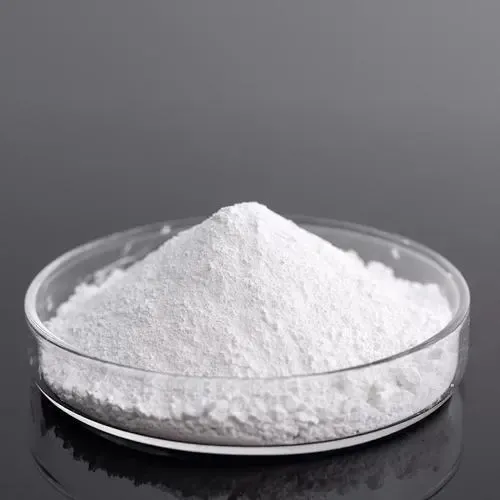
9 月 . 28, 2024 00:38 Back to list
Titanium Dioxide Applications in Pharmaceutical Manufacturing and Its Benefits for Medicine
The Role of Titanium Dioxide in Pharmaceutical Manufacturing
Titanium dioxide (TiO2) is a widely used compound in various industries, including cosmetics, food, and pharmaceuticals. In the pharmaceutical sector, TiO2 serves multiple essential roles due to its unique properties, making it a preferred choice in the formulation of medications and supplements. This article delves into the uses of titanium dioxide in medicine manufacturing, examining its applications, benefits, and safety considerations.
Applications of Titanium Dioxide in Pharmaceuticals
1. Pigmentation Agent One of the primary functions of titanium dioxide in medicinal products is its role as a pigment. TiO2 is known for its outstanding opacity and brightness, making it an ideal whitening agent in tablets, capsules, and suspensions. This application enhances the aesthetic appeal of pharmaceutical products and improves patient compliance by facilitating easy identification and differentiation of medications.
2. Opacifying Agent Beyond its role as a pigment, titanium dioxide also acts as an opacifying agent in pharmaceutical formulations. This characteristic is particularly important in the manufacture of enteric-coated tablets, where TiO2 helps mask unpleasant tastes and protects sensitive active ingredients from degradation due to light exposure and moisture. By improving the stability of these formulations, manufacturers can ensure greater efficacy and shelf-life.
3. Stabilizing Agent Titanium dioxide contributes to the stability of various pharmaceutical formulations. Its fine particle size and surface area allow it to act as a stabilizer in emulsions and suspensions, preventing phase separation and ensuring uniform distribution of active ingredients. This stabilization is critical for maintaining the integrity of liquid medications, providing consistent dosing, and improving therapeutic outcomes.
4. Bulking Agent In many formulations, particularly those involving potent active pharmaceutical ingredients (APIs), the required dosage may be too small to form a practical tablet or capsule. Titanium dioxide can be used as a bulking agent to achieve the necessary volume without altering the therapeutic properties of the API. This is especially common in highly potent medications, where TiO2 helps produce easily manageable dosages.
5. Sunscreens and Topical Formulations Beyond oral medications, TiO2 is prominently used in topical formulations, including sunscreens and ointments. Its physical properties allow it to act as a UV filter, providing effective protection against harmful rays. In topical medications, TiO2’s inert nature ensures low allergic potential, making it suitable for sensitive skin formulations.
Benefits of Using Titanium Dioxide
titanium dioxide uses in medicine manufacturers

- Safety Titanium dioxide is generally recognized as safe (GRAS) by regulatory authorities when used in accordance with established guidelines. Its history of safe use in various applications across multiple industries adds to its appeal in medicine manufacturing.
- Regulatory Compliance TiO2 is approved by several health authorities worldwide, including the FDA and EMA, as an excipient in pharmaceutical products. Compliance with these regulations ensures that medications containing TiO2 meet rigorous safety and efficacy standards.
- Versatility The multifunctional nature of TiO2 allows manufacturers to use it across various dosage forms and formulations. Its versatility makes it a valuable component in the ongoing innovation of pharmaceutical products to meet diverse patient needs.
Safety Considerations
While titanium dioxide is considered safe for use in pharmaceuticals, there have been ongoing discussions about its safety in inhalable forms, especially concerning nanoparticle sizes. Inhalation studies indicate potential respiratory risks; therefore, its use in certain applications, such as inhalers or powdered medications, requires careful consideration and adherence to safety protocols.
Moreover, regulatory bodies continue to review and assess the safety of TiO2, especially in light of evolving research. Manufacturers must stay informed about guidelines and regulatory changes to ensure compliance and patient safety.
Conclusion
Titanium dioxide plays a critical and multifaceted role in pharmaceutical manufacturing due to its unique properties, including its ability to act as a pigment, opacifier, stabilizer, and bulking agent. Its applications contribute significantly to the safety, efficacy, and aesthetic appeal of medications, enhancing patient adherence and satisfaction. As pharmaceuticals evolve, the relevance of TiO2 is expected to grow, providing innovative solutions while ensuring compliance with health and safety standards. The future of titanium dioxide in medicine manufacturing holds promise, emphasizing the importance of continuous research and responsible use in industry practices.
-
Lithopone for Plastic & TiO2 R-5568/SK-6658 Masterbatch Solutions
NewsMay.30,2025
-
China Leading Rutile TiO2 Manufacturer - R5566 & R996 Grades Available
NewsMay.30,2025
-
High-Purity Anatase & Rutile TiO2 Powder Trusted Manufacturer
NewsMay.30,2025
-
High-Purity Anatase Products Trusted Supplier & Manufacturer
NewsMay.29,2025
-
Best Price Eco-Friendly Rutile TiO2 Supplier & Wholesale Factory
NewsMay.29,2025
-
Chinese Anatase Titanium Dioxide for Ceramic Glaze Reliable Supplier
NewsMay.29,2025
